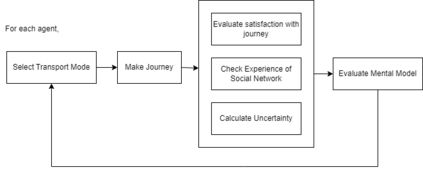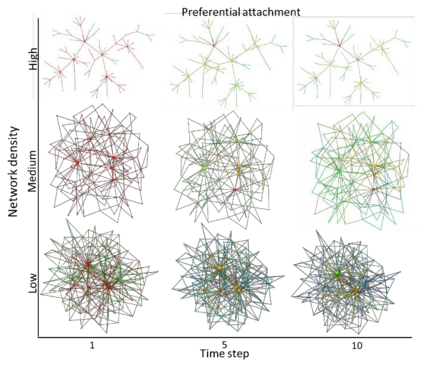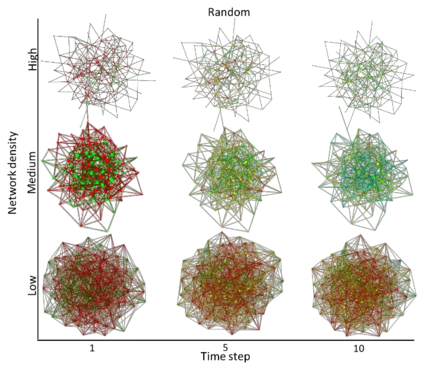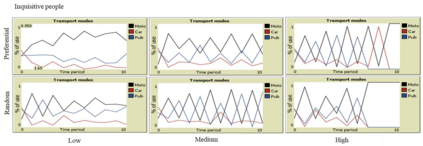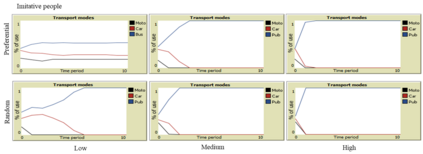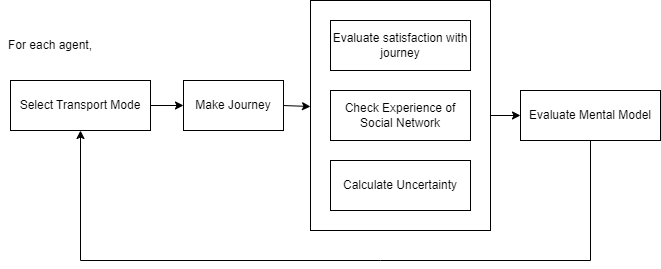Agent-based simulations have been used in modeling transportation systems for traffic management and passenger flows. In this work, we hope to shed light on the complex factors that influence transportation mode decisions within developing countries, using Colombia as a case study. We model an ecosystem of human agents that decide at each time step on the mode of transportation they would take to work. Their decision is based on a combination of their personal satisfaction with the journey they had just taken, which is evaluated across a personal vector of needs, the information they crowdsource from their prevailing social network, and their personal uncertainty about the experience of trying a new transport solution. We simulate different network structures to analyze the social influence for different decision-makers. We find that in low/medium connected groups inquisitive people actively change modes cyclically over the years while imitators cluster rapidly and change less frequently.
翻译:暂无翻译

